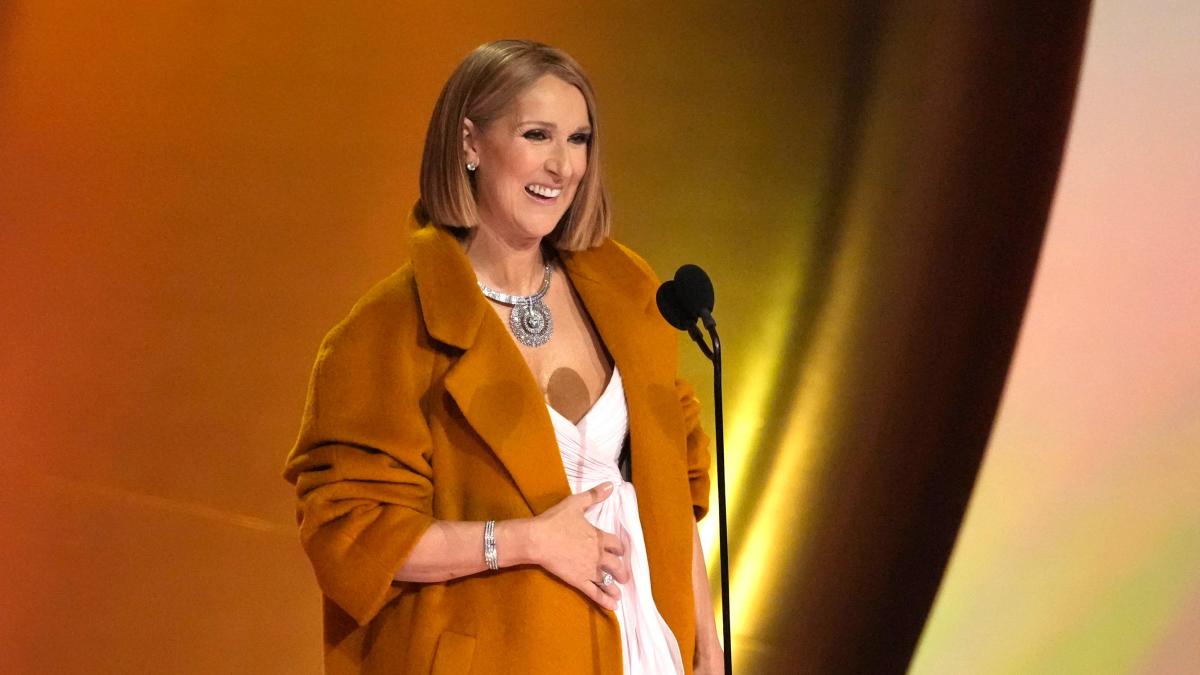Singer Céline Dion makes a surprise appearance at the Grammy Awards despite health problems

At the Grammy Awards, Céline Dion received a standing ovation for presenting Album of the Year, despite battling her rare neurological disorder, Stiff Person Syndrome (SPS).
The 55-year-old was helped onto the stage to receive the award, 27 years after Diana Ross and Sting presented her with the prize, she said.
Taylor Swift was among those who stood up as she walked in wearing a white dress and orange jacket.
“Thank you all, I love you too. When I say I’m happy to be here, I really mean it from the bottom of my heart,” Dion said.
“Those fortunate enough to be here at the Grammy Awards should never take for granted the tremendous love and joy that music brings to our lives and to the lives of people around the world.”
Dion has sold more than 250 million albums and won five Grammy Awards over the course of her 40-year career.
Her most famous hits include “My Heart Will Go On” from the movie “Titanic”, “Think Twice”, “Because You Loved Me”, “It’s All Coming Back To Me Now”, “The Power Of Love” and “That’s The Way It Is”.
Dion spoke of suffering from muscle cramps as a result of the SPS and canceled her stay in Las Vegas in 2021 for health reasons.


She announced her diagnosis in December 2022 and canceled her Courage World Tour.
The main symptoms of SPS are muscle stiffness and cramps. Episodes of muscle cramps may be triggered by environmental stimuli such as loud noises and may subside once the stimulus has passed.
Some people with SPS suffer from other autoimmune diseases such as type 1 diabetes, vitiligo, and pernicious anemia.
There is no cure for SPS, but the disease can be treated, including with the use of muscle tranquilizers and relaxants.
Physiotherapy and occupational therapy are also treatment options for people with SPS.



